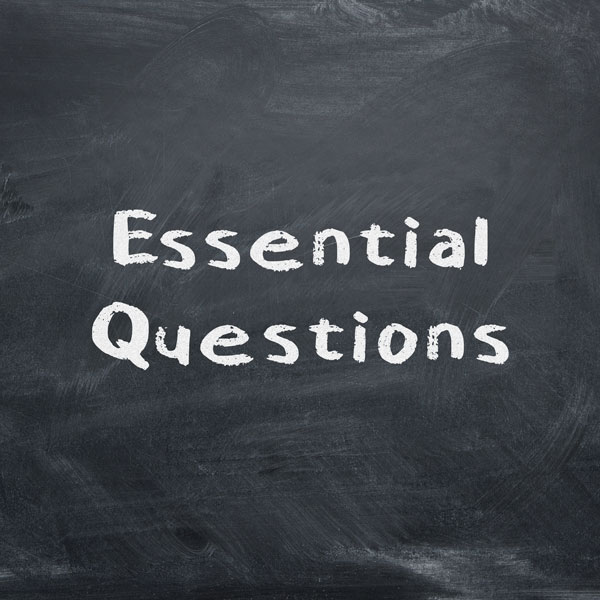K–2
Why do plants grow?
What makes a good friend?
Like play-based learning, essential questions increase student engagement, make learning more meaningful to students and help students connect skills and knowledge from one subject to another. By using essential questions as a tool, teachers are not simply covering the curriculum, they are also asking students to delve deeper and fully engage with what they are learning for a stronger understanding and knowledge transfer.

Essential questions share certain qualities:
They are open-ended and cannot be answered with a simple yes or no.
They are thought-provoking and often spark debate, discussion, and additional questions.
They require support and justification in answers.
They connect material to significant themes or concepts.
They are often interdisciplinary, linking history, math, science, literacy, and more.
They help students make sense of important concepts within the curriculum.
They cannot be answered by recall alone—they ask students to observe, analyze, evaluate, predict, and engage in higher-order thinking.
Checklist: Is your question open-ended? Does it connect across subjects? Does it invite multiple perspectives?
Why do plants grow?
What makes a good friend?
How do communities depend on water?
What makes a story powerful?
How do scientific discoveries change society?
What does fairness mean in a democracy?
How do stories shape the way we see the world?
How do living things adapt to survive?
Why do numbers matter in everyday life?
How do communities work together to solve problems?

Essential questions act as a north star. While children actively explore content and apply skills, these questions tie their discoveries to larger concepts and help solidify a deeper understanding of the curriculum. They:
We asked Seedlings Educators Collaborative facilitators to share their thoughts on essential questions, based on many decades of developing them in their own classrooms:
Essential questions are not just engaging–they also help teachers cover curriculum and meet standards such as Common Core or NGSS. For students, essential questions embed inquiry and curiosity into required content and encourage a sense of ownership of their own learning.